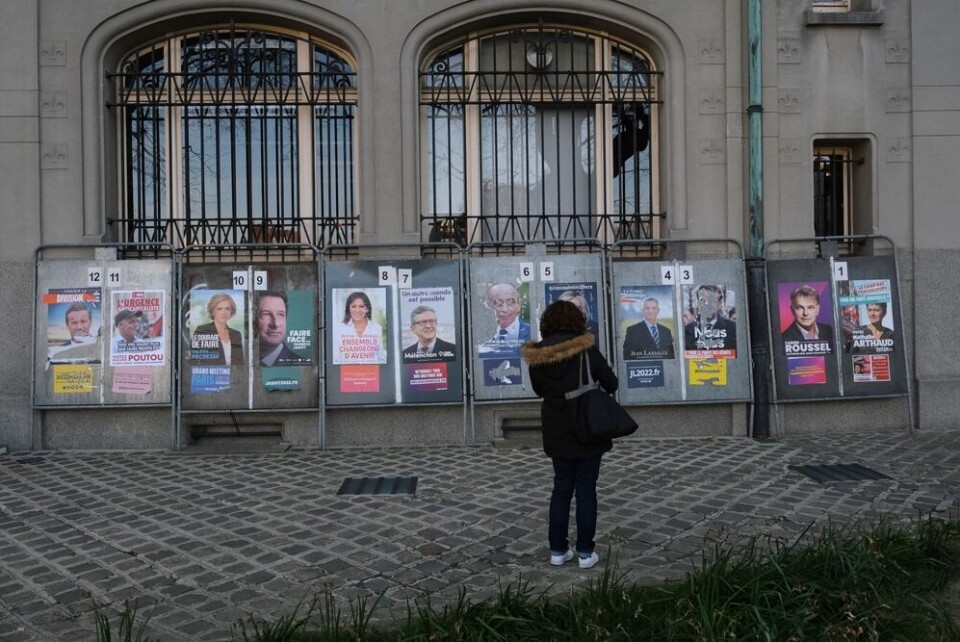-
My tips for bird nesting season in south-west France
Some species begin building nests as early as February, including collared doves, mistle thrushes and song thrushes
-
What I miss about France after moving back to UK
Columnist Gillian Harvey, who returned to the UK in 2024, explains what she misses – and what she has gained in the process
-
Auvergne region is neglected by government
Government agencies and the SNCF shun the area 'time and time again', says reader
Fascinating France: Absence makes the heart grow fonder
Richard Ogier, an Australian journalist based in Strasbourg, launches a new regular Connexion column by reflecting on France’s future political challenges

A new column, like a new city, offers the chance to take stock. After seven years in Munich, I have returned to France, to Strasbourg, an extremely liveable city with the multiple pleasures of a European border town.
On a tram from the edges of old Strasbourg (Porte de l’Hôpital), you can be across the Rhine in Kehl, in Germany, in 15 minutes.
Kehl does not have the obvious riches of Strasbourg – the architecture, the diversity of sites – but it puts you immediately in the ambience of Germany with its calm, its spaciousness, the different feeling.
For an Anglo-Saxon, that physical, topographical interface of two vastly different cultures remains a novelty. In Australia, Canada, New Zealand or Britain it does not exist. The cultural interface is interior to those countries, itself a fascinating phenomenon, but another story.
No, that sort of close-range living with another – an ‘other’, if you will – just across the border is a privilege and an opportunity fairly unique to continental Europe.
Granted, it is not the daily experience of every person living in France — not if you are based in, say, Marseille in the south or Nantes in the west. But it is a fairly common reality given that mainland France shares borders with eight other countries. And because for many of us Anglos — the Brits notwithstanding — France is a comparably small country, with great roads, trains and public sector infrastructure, getting around the country (and in and out of it) is fantastically easy.
This may seem a strange way to begin a regular column whose first purpose will be to give readers a take on French politics. Yet given France’s current political uncertainties, it seems appropriate to highlight some of the enduring positives immediately apparent after a lengthy stint away — positives that a long period in France can numb you to. They seem to be lost on many of our French friends, too. Every survey of its type shows the French to be among the world’s most discontented and pessimistic people.
Politically, France is in a kind of hinge period, where the door of history may open onto a period of renewal, or the sombre horizon of party-political logjam. After winning re-election in May, President Emmanuel Macron lost his parliamentary majority in the legislative elections that followed. It means that, by his own admission, he is going to have to negotiate legislation on a text-by-text basis (fleeting early hopes of a German-type coalition arrangement have been jettisoned).
There are riders, due to the presidential hue of the French constitution, but the short of it is that he is going to have to work with allies, and they with him, in new ways.
The problem therein is two-fold. First, that the president’s modus operandi has been to use parliament to rubber-stamp rather than build any kind of consensus approach. And the variegated opposition have so far seemed more intent on obstructing a legislative programme than working to modify and hone it. On a cost-of-living relief bill, for example, the hard-left led ‘Nupes’ alliance has tabled 600 amendments.
So before plumbing the complicated morass of French politics it is worth bearing in mind (and hoping the French do too) the quality of the transport and infrastructure here; the world-beating companies; France’s attraction to foreigners and foreign business; the style; the ‘1,001 ways to live’ in France; the primacy of culture in the national reckoning.
Pick a favourite cultural domain. Among mine is modern jazz. Well, there are four excellent jazz clubs within a stone’s throw in central Paris. And cinema. From box-office to art house, the range and extent of the offer is exceptional. And the Paris-provinces distinction is often overplayed. Moving to Strasbourg in January, for example, there were Pedro Almodovar and Ingmar Bergman seasons. The French believe in the importance of repertoire, as well as the cutting edge, and their own hand in a gatekeeping role.
Unlike the US, Britain or Italy, France is yet to suffer the trauma of populism in high office. Ultimately, the main game — la substantifique moelle — of big arena French politics in the months ahead is going to be both the preservation and reform, or not, of a fascinating, sometimes infuriating, endlessly subtle and stylish democracy. It is worth remembering, if not uncritically, why France is worth speaking for.
Richard Ogier is an Australian journalist based in Strasbourg. He has written on France and Germany for the LA Times, Canadian Globe and Mail, Libération, Independent and for his native Australian press. He joins The Connexion as a regular columnist.
Related articles:
‘President Macron, use the summer to plan France’s global future’
French politics: President Macron is in office but he is not in power
























